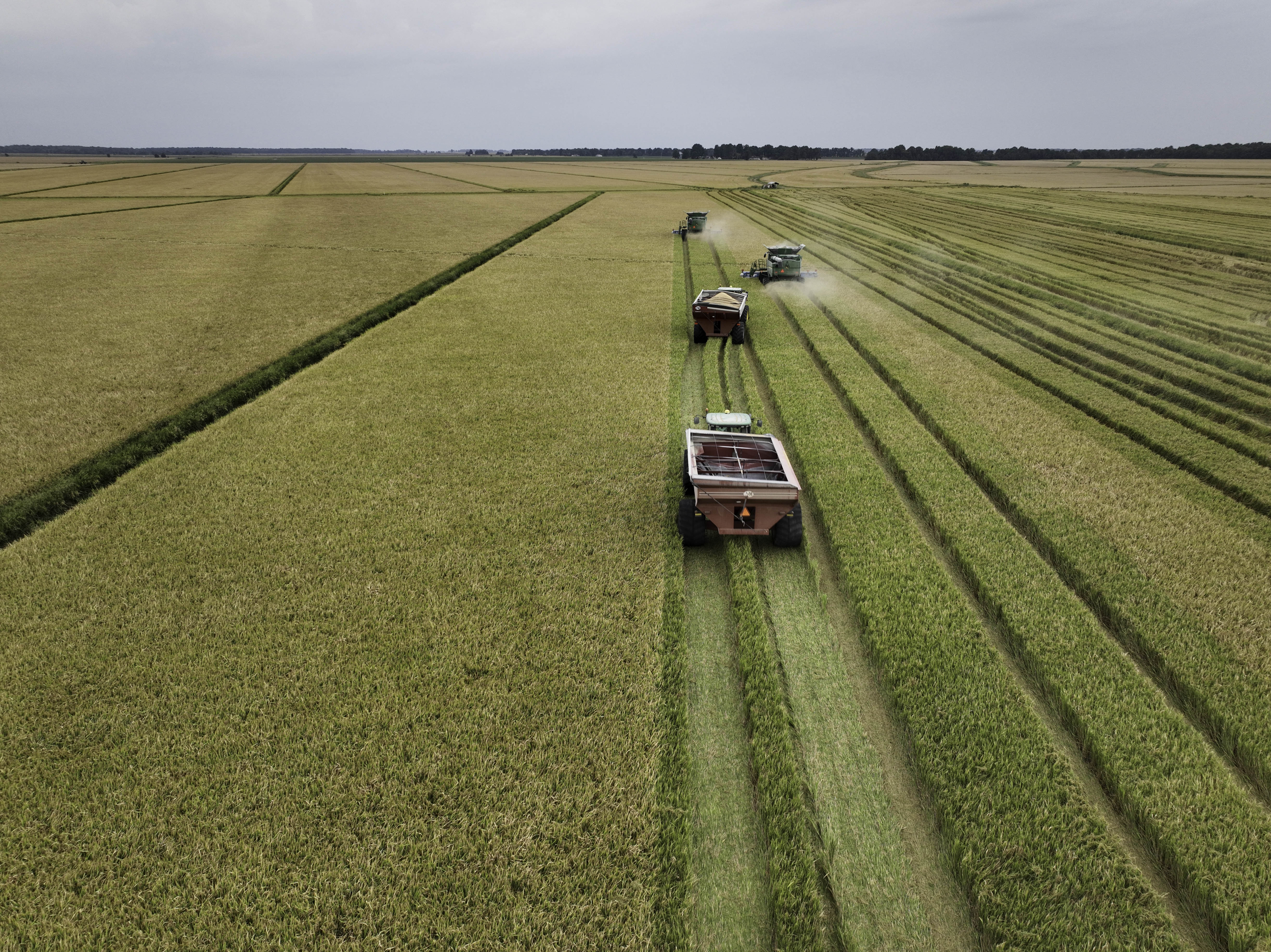From Farm to Table: How Riceland Is Shaping the Future of Rice Sourcing for Foodservice
In 2025, foodservice buyers are navigating a landscape shaped by economic pressures, labor challenges, and evolving consumer preferences. The foodservice industry is under pressure to provide quality and consistency while reducing costs and meeting sustainability goals.
As these challenges intensify, rice suppliers must align with the evolving priorities of foodservice buyers, focusing on four key areas: consistency, sustainability, versatility, and innovation. For Riceland, this means not only meeting the immediate needs of our customers but also anticipating future trends and changes in the marketplace.
1. Consistency and Reliability
Foodservice operations rely on suppliers who can deliver consistent quality and dependable supply, even in times of uncertainty. With global rice prices stabilizing at multi-year lows due to abundant stockpiles, particularly from India, buyers expect suppliers to maintain stable pricing and reliable delivery schedules. Price volatility and supply chain disruptions continue to pose challenges, making the role of reliable suppliers even more critical.
Riceland, as a farmer-owned cooperative, stands out in this regard. With direct relationships with farmers in Arkansas and Missouri, Riceland can offer consistent, high-quality rice year-round, helping foodservice buyers navigate the fluctuating market with confidence. Our commitment to dependable supply chains ensures that operators can rely on Riceland's products to meet customer demand without interruption.
2. Sustainability and Ethical Sourcing
Sustainability continues to be a significant consideration in the foodservice industry, as operators are under increasing pressure to adopt eco-friendly practices. Buyers are increasingly seeking rice suppliers who can provide transparency in sourcing and demonstrate commitment to environmental stewardship. This includes reducing water usage, lowering greenhouse gas emissions, and managing resources responsibly.
Riceland has made sustainability a core part of its mission. Through the cooperative’s Ingrain Good Sustainability Initiative and the Riceland Carbon Ready™ Program, the cooperative works directly with farmers to track and reduce environmental impacts, including water usage and carbon emissions. By using data from sustainable agriculture practices, Riceland can provide foodservice buyers with a clear sustainability story, aligning with the growing demand for ethically sourced and environmentally responsible products. This commitment helps operators meet their own sustainability goals and enhances their brand’s appeal to eco-conscious consumers.
3. Versatility Across Menu Applications
Rice’s versatility makes it a staple ingredient across various cuisines and meal types. Whether it’s a side dish, main entrée, or incorporated into international flavors, rice adapts to nearly any type of dish, making it indispensable for foodservice operators. Buyers value suppliers who offer a diverse range of rice products that can be used across quick-service meals, casual dining, fine dining, and everything in between. This adaptability allows foodservice operators to streamline their operations while still offering variety to their customers.
Riceland understands this versatility and offers a broad selection of rice products, from long-grain white rice and brown rice to specialized varieties like jasmine rice and wild rice blends. This wide array of options allows foodservice buyers to meet the specific needs of their menus, whether they’re serving comfort foods, health-conscious meals, or international dishes. Riceland’s rice is an essential ingredient in everything from hearty comfort food to trendy, plant-based bowls, helping operators create menu offerings that cater to diverse consumer tastes.
4. Innovation in Product Offerings
Innovation remains a key driver in the foodservice industry, especially as consumer preferences evolve rapidly. As more diners look for convenience, dietary options, and unique flavors, foodservice buyers are turning to suppliers who can provide innovative rice products that help meet these demands. These innovations might include ready-to-eat or pre-cooked rice, parboiled rice options, or rice products that cater to emerging dietary trends, such as organic, gluten-free, and low-carb varieties.
Riceland has consistently innovated to meet these changing needs. Our parboil rice options cater to busy kitchens, enabling foodservice operators to serve high-quality rice with longevity on the steam table. Riceland’s gluten-free rice products also tap into the growing demand for health-conscious and specialized menu options. These offerings not only align with consumer trends but also help foodservice buyers keep their menus fresh and relevant, positioning them as leaders in providing innovative dining experiences.
Conclusion
As foodservice buyers face growing pressures in 2025, sourcing smarter becomes essential. To succeed in a rapidly changing marketplace, rice suppliers must offer more than just a product; they must be trusted partners who provide consistency, sustainability, versatility, and innovation. By staying ahead of trends, investing in sustainable practices, and offering a wide range of high-quality rice options, Riceland is uniquely positioned to help foodservice buyers meet their challenges and deliver exceptional dining experiences.
Ultimately, rice suppliers who prioritize these values will be able to build strong, lasting relationships with their customers, supporting the long-term success of foodservice operations across the industry.
Is Riceland’s sustainability program or rice offerings of interest for your operations? Contact our sales team today to learn how we can support your business needs with premium, sustainable rice.






